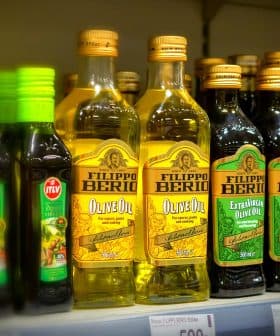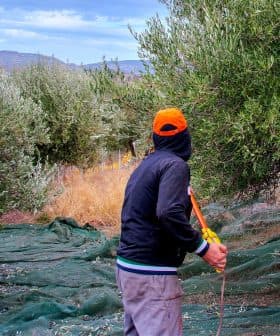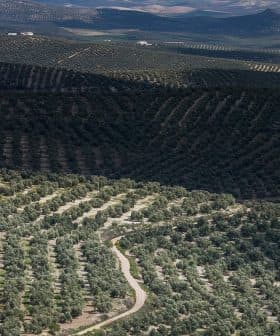Olive Groves Lead the Way in Efforts to Boost Organic Farming in Spain

Spain is making significant progress towards the European Commission’s goal of having 25 percent of agricultural land under organic farming practices by 2030, with 10 percent of Spain’s agricultural lands already being organically cultivated. Organic olive groves are leading the way, covering 222,723 hectares across 16 of Spain’s autonomous communities and accounting for an annual yield of about 326,000 tons of olives.
Spain is well on its way to accomplishing one of the main sustainability goals set out by the European Commission earlier this year, according to Luis Planas, the minister of agriculture, fisheries and food.
In March, the commission announced a plan to grow the share of agricultural land under organic farming practices to 25 percent by 2030. Planas said that 10 percent of Spain’s agricultural lands are already organically cultivated as of last year.
See Also:Meet One of Spain’s Hobby Olive GrowersLeading the way are the country’s olive groves. According to data from the ministry, one in 10 hectares of organically cultivated farmland in Spain is dedicated to olive groves. Organic olive groves cover 222,723 hectares – an area larger than Luxembourg – across 16 of the country’s 17 autonomous communities.
Combined, organic olive groves account for an annual yield of about 326,000 tons of olives, of which 99 percent are used for olive oil production.
Andalusia is home to the largest share of organic olive groves – 88,691 hectares – and about 1.1 million hectares of organic croplands, in general. Castilla-La Mancha follows closely behind with 74,154 hectares of organic olive groves and 423,000 hectares of organic farmland.
Autonomous Community | Organic Olive Groves (ha) | Certified Organic in 2020 (ha) | Olive Production (tons) |
Andalusia | 88,691 | 9,631 | 133,916 |
Aragón | 4,420 | 797 | 3,623 |
Asturias | 0.03 | 0 | 0 |
Baleares | 1,056 | 123 | 1,753 |
Basque Country | 25 | 0.1 | 10 |
Canarias | 62 | 0 | 325 |
Castilla-La Mancha | 74,154 | 4,081 | 106,799 |
Castilla and León | 697 | 11 | 382 |
Catalonia | 8,870 | 372 | 19,907 |
Extremadura | 29,131 | 979 | 41,842 |
Galicia | 179 | 2 | 116 |
Madrid | 3,716 | 40 | 2,257 |
Murcia | 4,583 | 129 | 6,110 |
Navarra | 813 | 26 | 636 |
La Rioja | 736 | 14 | 2,209 |
Valencia | 5,589 | 398 | 5,944 |
Cantabria, located on Spain’s northern coastline with the Bay of Biscay, is the only autonomous community with no organic olive groves.
Of the eight main permanent crops tracked by the ministry, there are more olive groves than any other type. Tree nuts are the second-largest category, with 196,941 hectares dedicated to organic cultivation.
Olive groves are also the second-fastest-growing category of crop entering organic cultivation.
In 2020, 16,600 hectares of olive groves were certified organic for the first time. A further 19,400 hectares are in the process of organic conversion. Almonds are the only crop that experienced faster growth rates of organic certification.
Overall, Spain experienced a 3.5 percent increase in its organic croplands in 2020, arriving at a total of 2,437,891 hectares. Only Australia and Argentina dedicate more land to organic farming.
Along with the increase in organic farming, the ministry said the number of producers certified as organic had also increased by six percent in 2020. There are now 44,493 organic farming operations in the country.









